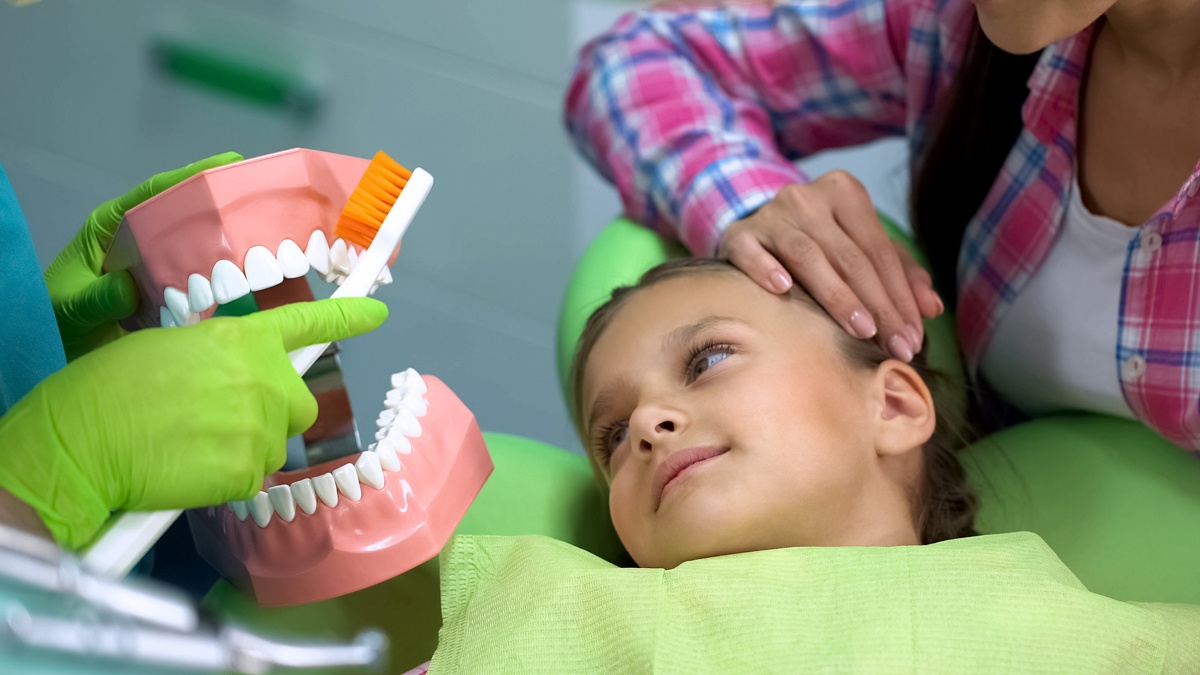As parents, we know we are doing the right thing by brushing our children’s teeth. We do research to find the best toothpaste, and we make sure our kids have an adequate toothbrush. As they grow, we introduce our children to flossing. For all intents and purposes, we are indeed building the groundwork for a successful oral health future.
But are we? Do we rely on juice throughout the day to keep our kids hydrated? Do we let them sip on milk just before they fall asleep? Do we let them snack on candy during the day?
If your answer is yes to any of these diet “no no’s,” then, unfortunately, your efforts to teach your kids top-of-the-line dental hygiene could be getting canceled out.
Dr. Rula Shalabi of Indigo Pediatric Dentistry explained that the No. 1 contributor to decayed teeth and cavities, which are essentially holes in the teeth that collect bacteria and weaken the tooth structure, is diet. Prevention is important, but when a cavity is suspected, Dr. Shalabi said not to delay a child’s dental visit.
“Cavities are strong, and, without the proper care, you may never know they are happening until it is too late,” she said.
In fact, Dr. Shalabi pointed out that many children never complain of pain from a decayed tooth.
“You might notice that they aren’t eating or drinking as much because children are resilient and find ways to avoid the sensitivity they may feel,” she said.
Once the cavity has grown for a period of time, an abscess may appear, but pain still might not be noticed.
“The body is trying to fix itself, but an abscess means it tried and failed,” she explained.
Dr. Shalabi said small cavities will only require a simple and conservative composite, or white filling, if they are found early on at a routine dental appointment. Delaying a filling can lead to decay that will progress to more costly yet necessary treatment. For example, a crown is necessary when three or more surfaces of a baby tooth are affected by decay and when a filling will not last for the life of the tooth or protect it appropriately. Delaying a crown can lead to nerve damage, loss of the tooth and the insertion of a spacer, depending on age.
For baby teeth that have significant decay but are less than eight to 12 months from naturally falling out – and if no pain is present – Dr. Shalabi said her treatment of choice is silver diamond fluoride to arrest the decay and allow the child to lose the tooth naturally. She noted that there are times when a small decalcified or weakened area of the tooth could actually be reversed.
“With proper diet, brushing and use of fluoride, we may have the chance to reverse a cavity and possibly not have to do anything,” she said, adding that the 50/50 chance could well be worth the risk if the patient follows her recommendations.
Dr. Shalabi concluded that cavities should not be ignored due to the risk of infection.
“Depending on the body’s response to the infection, the bacteria can invade the fascial layer and cause fascial cellulitis,” she said. “There are problems such as Ludwig’s angina that would require hospitalization. I have seen children with their whole eyes swollen shut and even some children that start to have difficulty breathing due to the infection invading areas in the neck and secondarily affecting their airway. Some infections can be controlled with oral antibiotics, but some require a child to be hospitalized and placed on IV antibiotics and possibly need an incision and draining by an oral surgeon or ENT to remove the infectious exudate.”
She also pointed out, “The infection can potentially deflect the tooth’s eruption direction and can also cause defects in the developing permanent tooth. Just be sure to follow up regularly for your dental visit and ask your dentist for X-rays.”
By Theresa Stratford
For more information, visit Indigo Pediatric Dentistry at smilewithindigo.com.
